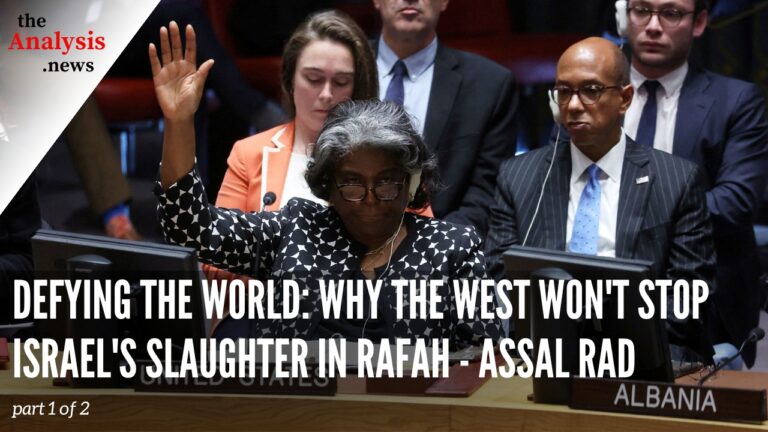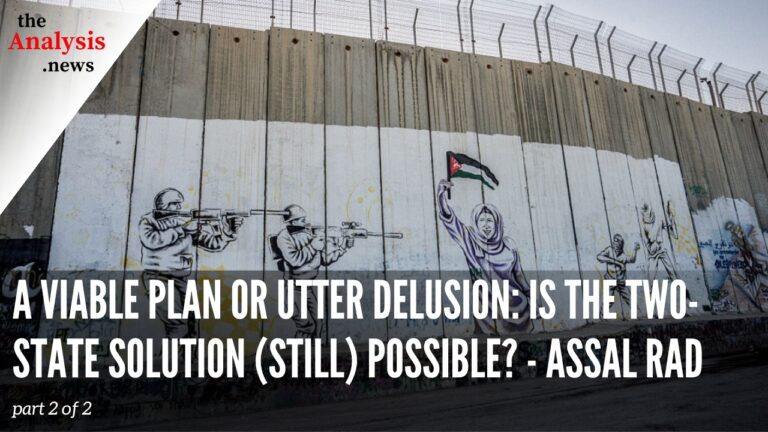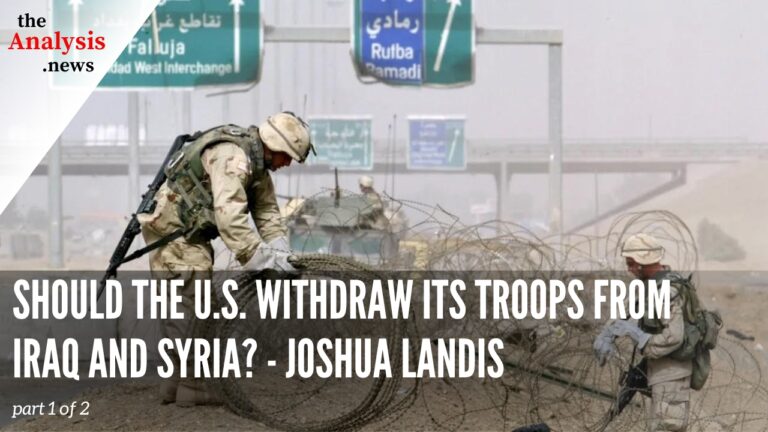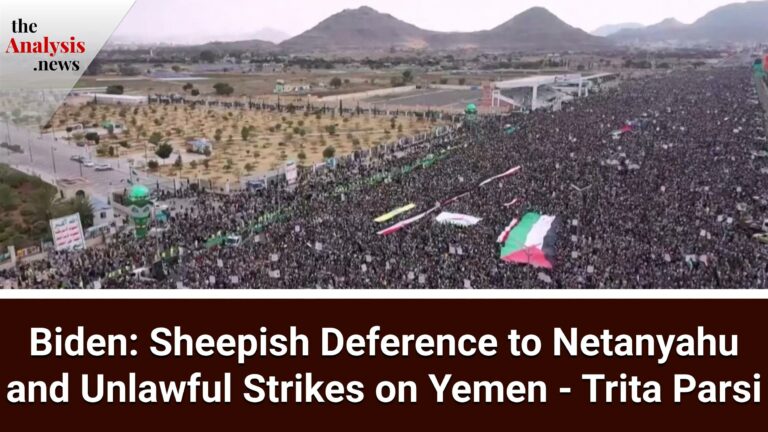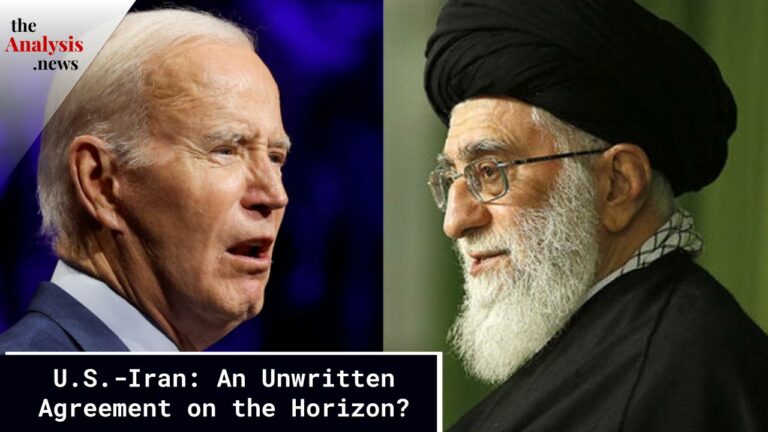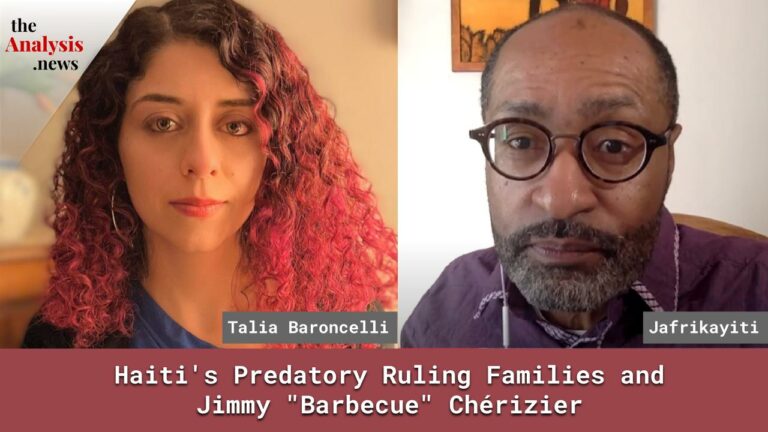Genocide in Gaza: When Does the History Begin? – Paul Jay
Israel’s objective is to maintain Jewish-Israeli dominance in the region by imposing inhumane conditions on Palestinians, resulting in the forced displacement of the entire population of Gaza. Paul Jay, the founder of theAnalysis, states that in order to understand the Israel-Palestine conflict, one has to view it from the context of U.S. global hegemony and monopoly capitalism.

